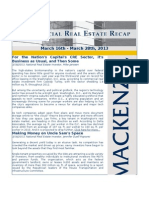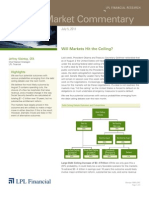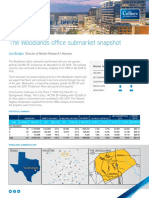January 19, 2013 - February 1, 2013: Maryland Tax Credit Bill Aims To Spur Commercial Development
January 19, 2013 - February 1, 2013: Maryland Tax Credit Bill Aims To Spur Commercial Development
Uploaded by
Anonymous Feglbx5Copyright:
Available Formats
January 19, 2013 - February 1, 2013: Maryland Tax Credit Bill Aims To Spur Commercial Development
January 19, 2013 - February 1, 2013: Maryland Tax Credit Bill Aims To Spur Commercial Development
Uploaded by
Anonymous Feglbx5Original Title
Copyright
Available Formats
Share this document
Did you find this document useful?
Is this content inappropriate?
Copyright:
Available Formats
January 19, 2013 - February 1, 2013: Maryland Tax Credit Bill Aims To Spur Commercial Development
January 19, 2013 - February 1, 2013: Maryland Tax Credit Bill Aims To Spur Commercial Development
Uploaded by
Anonymous Feglbx5Copyright:
Available Formats
January 19, 2013 - February 1, 2013
Maryland Tax Credit Bill Aims to Spur Commercial Development
1/22/2013, Baltimore Business Journal, Gary Haber Commercial real estate developers would be able to claim a state income tax credit for their projects under a bill introduced in the General Assembly. The tax credit legislation comes at the same time that Gov. Martin O'Malley wants to launch a new $3 million tax credit for cyber security companies, and increase tax credits for biotech firms, research and development and Maryland's television and film industry. Under the legislation, developers of commercial projects would be able to claim a tax credit of up to $25,000 for five years. Click here for more...
Feverish Pace of MOB Development Fueled by Strong Demand, New Occupancy Trends
1/23/2013, CoStar Group, Randyl Drummer
The hot medical office building (MOB) market is likely to remain in at least a semi-feverish state as the transition of common medical procedures to outpatient clinics accelerates with full implementation of the Patient Protection & Affordable Care Act, fundamentally changing the nation's health-care delivery system. Health care was the largest job-creation sector in 2012, with most of the jobs added in ambulatory care facilities, a trend that will continue this year according to Jeffrey Cooper, executive managing director of Savills US. Continued health-care employment growth, combined with the expected increase in demand for medical care services from the aging population is expected to continue to drive development of medical ambulatory care facilities, including MOBs, surgery centers, urgent care clinics and diagnostic lab facilities. Click here for more...
Maryland Lawmakers Propose Corporate Income Tax Rate
1/25/2013, Baltimore Business Journal, Gary Haber
Lowering
Two state lawmakers from Frederick County want to lower Maryland's corporate income tax rate, saying it would make the state more competitive with neighboring Virginia. The bill would drop the rate on corporate income from 8.25 percent to 6 percent, the same as in Virginia. That would help Maryland compete better for jobs and corporate relocations with its southern neighbor, said Del. Kelly Schulz, R-Frederick County, who sponsored House Bill 261. The Maryland Chamber of Commerce backs lowering the corporate tax rate. A lower tax rate would help Maryland compete better with Virginia and North Carolina, which has a 6.9 percent corporate tax rate, the Chamber said on its website. A lower rate also would encourage companies already in Maryland to expand their hiring and operations in the state, the Chamber said. It is unclear how the proposed tax cut would affect state tax collections because a fiscal note has not yet been issued for either bill. Click here for more...
'Wall St.' Flees NY for Tax-Free Fla.
1/28/2013, The New York Post, Josh Margolin
The city's hedge-fund executives are flying south - and it's not for vacation. An increasing number of financial firms, especially private equity and hedge funds, are fed up with New York's sky-high city and state tax rates and are relocating to the business-friendly climate in Florida's Palm Beach County. And they're being welcomed with open arms - officials in Palm Beach recently opened an entire office dedicated to luring finance hot shots down south. But there's no state income tax in the Sunshine State. Compare that to New York, where the state and local governments took $14.71 of every $100 earned in 2010, according to state records. Click here for more...
When Good News for Real Estate is Bad
1/29/2013, The Wall Street Journal, Al Yoon A new worry is threatening the rally in the rebounding market for commercial mortgage-backed securities: Property owners have started to pick up the pace of resolving problems with distressed loans. That is bad news for bondholders who paid up to buy such securities on the assumption they would keep paying a high interest rate for a longer period. Until now, the biggest concern, as the market has rebounded, has been in the high delinquency rate. Many commercial properties still are suffering from high vacancy and low demand, and the resulting defaults have caused losses for some commercial-mortgage security investors. Click here for more...
US Economy Shifted into Reverse in Late 2012,
Partly Because of Sharp Gov't Spending Cuts
1/30/2013, Associated Press via The Washington Post The U.S. economy shrank unexpectedly late last year, a reminder of the biggest threat it faces in 2013: sharp government spending cuts and prolonged political budget fights. A plunge in defense spending helped push the economy into negative territory for the first time since mid-2009. The contraction in the OctoberDecember quarter came in at an annual rate of 0.1 percent, according to a government estimate released Wednesday. The likelihood of another recession appears remote. The economy is forecast to grow around 2 percent this year as strength in areas like housing and auto sales could partly offset government cutbacks. Investors appear unfazed, too: The stock market has surged more than 6 percent this year and is nearing an all-time high. But economists warn that further spending cuts would weaken a stillprecarious recovery. Click here for more...
Recovering Office Demand Sets Stage for Rent Growth Across the U.S.
1/30/2013, CoStar Group, Randyl Drummer
Tenant demand for office space ended 2012 on a strong note as occupancy gains spread across a broadening array of U.S. markets, opening the door for widespread rental rate increases this year, CoStar Group reported in the company's Year-End 2012 Office Review & Outlook. Nearly every U.S. office market enjoyed absorption gains in 2012, with the exception of a few markets with industry-specific or regional economic issues, such as Northern New Jersey, where the pharmaceutical business has been in contraction. With very limited new office construction save for medical office and health care related projects in various markets and a significant amount of older space claimed by the wrecking ball or converted to other uses such as multifamily or hotels, vacancy rates fell across the country in the fourth quarter.Click here for more...
Is the Refi 'Apocalypse' Really Upon Us?
1/30/2013, CNBC, Diana Olick
Mortgage rates today are very low, but U.S. borrowers have a very short memory. They forget that the rate on the 30-year fixed, which sits around 3.6 percent today, was a full percentage point higher a year ago, and above 5 percent in January of 2010. The purchasing power gained through today's low rates have arguably helped fuel the recovery in home sales. Low rates have also sparked a boom in mortgage refinancing, which in turn has put more spending money in consumers' pockets. Witness the 10 percent drop in refinance applications from a week ago, on the Mortgage Bankers Association's weekly report. The rate on the 30year fixed moved from 3.62 percent to 3.67 percent.
While the Federal Reserve does not set mortgage rates, a signal that the economic recovery is improving and even the slightest hint that the Fed could end its purchases of mortgage-backed securities, could push rates slightly higher. Click here for more...
Main Street Remains Pessimistic, Sees Little 2013 Hiring: Survey
1/31/2013, CNBC, Heesun Wee
While there's evidence suggesting the jobs market is slowly recovering, a large chunk of small-business owners remain pessimistic and expect the economy to remain stagnant or worsen in 2013, according to a new survey of 600 small firms. Most respondents also said they plan to trim costs, and 87 percent said they did not plan to hire additional employees. Top concerns for small businesses this year not surprisingly are taxes (70 percent, according to the survey), government regulation (50 percent) and the Affordable Care Act, also known as Obamacare (or 36 percent). Despite the gloom and doom, entrepreneurs do see growth opportunities in the e-commerce space, with nearly half of those surveyed expected to create a new e-commerce website. Small-business owners (52 percent of respondents) also see potential export opportunities in the BRIC countries - Brazil, Russia, India, and China. Click here for more... Click here to download a printable version
MacKenzie is committed to helping firms capture a competitive advantage through commercial real estate. We have a proven approach, a skilled, multi-disciplined team, and the in-depth local market knowledge necessary to succeed in Maryland's business environment. MacKenzie is a full-service commercial real estate company offering services in leasing and sales, construction, development, GIS and research, property management, and debt and equity placement. For more information, please contact: Meghan G. Roy 410.494.4846 Email Meghan Now
This newsletter is a summary of articles related to commercial real estate finance news in the Baltimore/Washington market, collected from local publications as noted above. Should you require specific information, please refer to the publication source or call one of our professionals at 410.821.8585. All information furnished regarding property for sale, rent, exchange or financing is from sources deemed reliable. No representation is made as to the accuracy thereof and all such information is submitted subject to errors, omissions, or changes in conditions, prior sale, lease or withdrawal without notice. All information should be verified to the satisfaction of the person relying thereon.
You might also like
- Latin America Gri Real Estate 2023Document22 pagesLatin America Gri Real Estate 2023Tiago Pedroso FonsecaNo ratings yet
- March 16thDocument5 pagesMarch 16thAnonymous Feglbx5No ratings yet
- April 27thDocument4 pagesApril 27thAnonymous Feglbx5No ratings yet
- February 2nd - February 15th, 2013: Rising Demand Propels Warehouse Market To Strong 2012 FinishDocument4 pagesFebruary 2nd - February 15th, 2013: Rising Demand Propels Warehouse Market To Strong 2012 FinishAnonymous Feglbx5No ratings yet
- March 29thDocument4 pagesMarch 29thAnonymous Feglbx5No ratings yet
- February 16th - March 1st, 2013: Report Reveals Why Va. Typically Outranks Md. in Business Climate SurveysDocument5 pagesFebruary 16th - March 1st, 2013: Report Reveals Why Va. Typically Outranks Md. in Business Climate SurveysAnonymous Feglbx5No ratings yet
- C R E R C: Ommercial Eal State E ApDocument2 pagesC R E R C: Ommercial Eal State E ApAnonymous Feglbx5No ratings yet
- Climbing Rates Seen Stalling Rise in Values: June 22 - July 8, 2013Document3 pagesClimbing Rates Seen Stalling Rise in Values: June 22 - July 8, 2013Anonymous Feglbx5No ratings yet
- The Fed - Its Raining Its Pouring The Old Man Is Snoring - Fed Rains Money On Wall Street-Nothing For Main Street AmericansDocument10 pagesThe Fed - Its Raining Its Pouring The Old Man Is Snoring - Fed Rains Money On Wall Street-Nothing For Main Street Americans83jjmackNo ratings yet
- Mayank Aggarwal - JULY REPORTDocument5 pagesMayank Aggarwal - JULY REPORTMayank AggarwalNo ratings yet
- Municipal Outlook 2014: Peeling Back The Layers of Theonion: December 2013Document6 pagesMunicipal Outlook 2014: Peeling Back The Layers of Theonion: December 2013John Richard FarrallNo ratings yet
- The Valuation of Government ContractorsDocument5 pagesThe Valuation of Government Contractorsgiorgiogarrido6No ratings yet
- Market Commentary 11-12-12Document4 pagesMarket Commentary 11-12-12CLORIS4No ratings yet
- Summer ForecastDocument2 pagesSummer Forecastkatdoerr17No ratings yet
- The Path To Job Creation: The State of American Small BusinessesDocument132 pagesThe Path To Job Creation: The State of American Small BusinessesScribd Government DocsNo ratings yet
- The New U.K. Life Insurance Landscape Is Beginning To Take ShapeDocument5 pagesThe New U.K. Life Insurance Landscape Is Beginning To Take Shapeapi-227433089No ratings yet
- Stegman (2007)Document23 pagesStegman (2007)ChinCeleryNo ratings yet
- BizjrnlNov 2013B PDFDocument8 pagesBizjrnlNov 2013B PDFThe Delphos HeraldNo ratings yet
- July 12Document64 pagesJuly 12Saifur RahmanNo ratings yet
- Harbor Point $107M Tax Deal Gets Final OK After Months of ControversyDocument3 pagesHarbor Point $107M Tax Deal Gets Final OK After Months of ControversyAnonymous Feglbx5No ratings yet
- 1 10 UpdateDocument3 pages1 10 Updatenatdogg1No ratings yet
- Red FinancialDocument63 pagesRed Financialreegent_9No ratings yet
- 2012年12月英语六级真题Document15 pages2012年12月英语六级真题六级真题及解析(1990-2022)No ratings yet
- Weekly Market Commentary 07-05-2011Document4 pagesWeekly Market Commentary 07-05-2011Jeremy A. MillerNo ratings yet
- GM To Shed 30Document66 pagesGM To Shed 30no4russoNo ratings yet
- House Hearing, 114TH Congress - Contracting and The Industrial Base Ii: Bundling, Goaling and The Office of Hearings and AppealsDocument68 pagesHouse Hearing, 114TH Congress - Contracting and The Industrial Base Ii: Bundling, Goaling and The Office of Hearings and AppealsScribd Government DocsNo ratings yet
- CRE Transaction Rise 16% in First Half of 2014: October 25th - November 7th, 2014Document2 pagesCRE Transaction Rise 16% in First Half of 2014: October 25th - November 7th, 2014Anonymous Feglbx5No ratings yet
- C CCCCCCCCDocument2 pagesC CCCCCCCCapi-118535366No ratings yet
- In The NewsDocument6 pagesIn The Newsapi-244981307No ratings yet
- Cutting Popular U.S. Tax Programs Could Harm Tax-Exempt Bond IssuersDocument8 pagesCutting Popular U.S. Tax Programs Could Harm Tax-Exempt Bond Issuersapi-227433089No ratings yet
- Another Financial Meltdown Is Closer Than It Appears.: Source: FREDDocument14 pagesAnother Financial Meltdown Is Closer Than It Appears.: Source: FREDVidit HarsulkarNo ratings yet
- Do Small Businesses Get The Credit They Need?: Michaël Dewally, PH.DDocument4 pagesDo Small Businesses Get The Credit They Need?: Michaël Dewally, PH.DAnonymous Feglbx5No ratings yet
- Debt, Profits, Canada & More .: Nvestment OmpassDocument4 pagesDebt, Profits, Canada & More .: Nvestment OmpassPacifica Partners Capital ManagementNo ratings yet
- Your Credit Card Company Is Hoping You Will Be Back On Your Feet Soon - WSJ April 10, 2020Document5 pagesYour Credit Card Company Is Hoping You Will Be Back On Your Feet Soon - WSJ April 10, 2020Niraj SinghNo ratings yet
- December 1st Through 12th, 2014: Read MoreDocument2 pagesDecember 1st Through 12th, 2014: Read MoreAnonymous Feglbx5No ratings yet
- Bondholders Would Lose More Than $1 Trillion If Yields Spike - BIS - ReutersDocument3 pagesBondholders Would Lose More Than $1 Trillion If Yields Spike - BIS - ReutersTan SoNo ratings yet
- Small Business Recovery After COVID-19: Policy BriefDocument7 pagesSmall Business Recovery After COVID-19: Policy BriefJoseph FordNo ratings yet
- Stegman Payday LendingDocument24 pagesStegman Payday Lendingian.robertsNo ratings yet
- The Global Outlook Isn't Bad. But When Will It Be Good?Document6 pagesThe Global Outlook Isn't Bad. But When Will It Be Good?api-227433089No ratings yet
- Financial News Articles - COMPLETE ARCHIVEDocument319 pagesFinancial News Articles - COMPLETE ARCHIVEKeith KnightNo ratings yet
- OFR Report December2010Document15 pagesOFR Report December2010Neil GillespieNo ratings yet
- Vehicle Finance Financial Bubble WPDocument16 pagesVehicle Finance Financial Bubble WPAnkit SainiNo ratings yet
- La Era de La ViolenciaDocument2 pagesLa Era de La ViolenciaAlexis TabaresNo ratings yet
- Aprile Affrunti Chancellor University MBA6350 Case Analysis 1Document5 pagesAprile Affrunti Chancellor University MBA6350 Case Analysis 1Aprile AffruntiNo ratings yet
- October 10 To October 24, 2014: As Recovery Continues, Maryland Households Fall BehindDocument3 pagesOctober 10 To October 24, 2014: As Recovery Continues, Maryland Households Fall BehindAnonymous Feglbx5No ratings yet
- W Hat You M Ust Know About Bankr Uptcy of The U Nited StatesDocument3 pagesW Hat You M Ust Know About Bankr Uptcy of The U Nited StatesSimply Debt SolutionsNo ratings yet
- OutsourcingDocument6 pagesOutsourcingshrads07No ratings yet
- Bob Chapman Review of Financial Markets The Call From Obama Is For More Leverage and More Debt 12 December 2009Document13 pagesBob Chapman Review of Financial Markets The Call From Obama Is For More Leverage and More Debt 12 December 2009sankaratNo ratings yet
- House Hearing, 112TH Congress - Running On Empty: The Effects of High Gasoline Prices On Small BusinessesDocument76 pagesHouse Hearing, 112TH Congress - Running On Empty: The Effects of High Gasoline Prices On Small BusinessesScribd Government DocsNo ratings yet
- House Hearing, 113TH Congress - The Decline in Business Formation: Implications For Entrepreneurship and The EconomyDocument115 pagesHouse Hearing, 113TH Congress - The Decline in Business Formation: Implications For Entrepreneurship and The EconomyScribd Government DocsNo ratings yet
- Commercial Banking in The US Industry ReportDocument40 pagesCommercial Banking in The US Industry ReportPpham100% (1)
- Fiscal Cliff ReportDocument39 pagesFiscal Cliff ReportCassidy TurleyNo ratings yet
- The Credit Squeeze Is Intensifying On Main StreetDocument4 pagesThe Credit Squeeze Is Intensifying On Main StreetValuEngine.comNo ratings yet
- FHA Loans, Worth It?Document4 pagesFHA Loans, Worth It?Philip LaTessaNo ratings yet
- Weekly Market Commentary 3/5/2013Document3 pagesWeekly Market Commentary 3/5/2013monarchadvisorygroupNo ratings yet
- Tushar Xaxa July2022Document5 pagesTushar Xaxa July2022Mayank AggarwalNo ratings yet
- Interest Rates Affect The Ability of Consumers and Businesses To Access CreditDocument4 pagesInterest Rates Affect The Ability of Consumers and Businesses To Access CreditKurt Del RosarioNo ratings yet
- KPMG Outlook Survey MA 2013Document0 pagesKPMG Outlook Survey MA 2013ppiravomNo ratings yet
- Houston's Office Market Is Finally On The MendDocument9 pagesHouston's Office Market Is Finally On The MendAnonymous Feglbx5No ratings yet
- ValeportDocument3 pagesValeportAnonymous Feglbx5No ratings yet
- Houston's Industrial Market Continues To Expand, Adding 4.4M SF of Inventory in The Third QuarterDocument6 pagesHouston's Industrial Market Continues To Expand, Adding 4.4M SF of Inventory in The Third QuarterAnonymous Feglbx5No ratings yet
- The Woodlands Office Submarket SnapshotDocument4 pagesThe Woodlands Office Submarket SnapshotAnonymous Feglbx5No ratings yet
- Mack-Cali Realty Corporation Reports Third Quarter 2018 ResultsDocument9 pagesMack-Cali Realty Corporation Reports Third Quarter 2018 ResultsAnonymous Feglbx5No ratings yet
- Asl Marine Holdings LTDDocument28 pagesAsl Marine Holdings LTDAnonymous Feglbx5No ratings yet
- THRealEstate THINK-US Multifamily ResearchDocument10 pagesTHRealEstate THINK-US Multifamily ResearchAnonymous Feglbx5No ratings yet
- Under Armour: Q3 Gains Come at Q4 Expense: Maintain SELLDocument7 pagesUnder Armour: Q3 Gains Come at Q4 Expense: Maintain SELLAnonymous Feglbx5No ratings yet
- Hampton Roads Americas Alliance MarketBeat Retail Q32018Document2 pagesHampton Roads Americas Alliance MarketBeat Retail Q32018Anonymous Feglbx5No ratings yet
- Greenville Americas Alliance MarketBeat Office Q32018Document1 pageGreenville Americas Alliance MarketBeat Office Q32018Anonymous Feglbx5No ratings yet
- Five Fast Facts - RIC Q3 2018Document1 pageFive Fast Facts - RIC Q3 2018Anonymous Feglbx5No ratings yet






































































